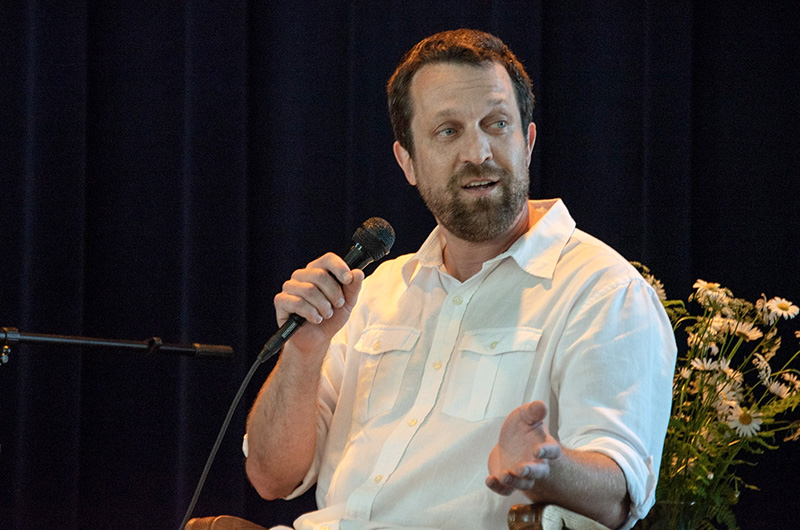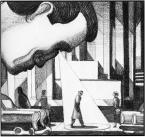Universal Love by Alexander Weinstein, Henry Holt, 2020, $26, 221 pgs.
Universal Love, the new story collection by Alexander Weinstein, the director of the Martha’s Vineyard Institute of Creative Writing, taps directly into the tech-anxieties that lurk in the background of our collective imagination. Those anxieties have always been grist for the science fiction mill — way back in 1950, Cordwainer Smith’s Scanners Live in Vain was already voicing the working person’s growing fear of being rendered obsolete by technology. But they’re more pronounced nowadays than they’ve ever been.
Is it any wonder? We live every day in a world considerably more advanced than the ones reflected in the stories of most of Cordwainer Smith’s contemporaries. We stare at screens for long chunks of our day, and the screens are staring back at us the whole time. We navigate by signals bounced from hundreds of planet-circling satellites. We can instruct our homes and garages and refrigerators about specific settings from dozens of miles away. We carry playing card-sized supercomputers with us at all times, and those supercomputers give us instantaneous access to the collective knowledge and ephemera of the last 7000 years.
We live with all this science fiction every day, so it’s not surprising it would seep further and further into our mainstream fiction. There are no ray guns or orbital rings in Universal Love; Weinstein has pitched his subjects much closer to daily life.
The story We Only Wanted Their Happiness, for instance, is narrated collectively by the parents of little children caught up in the newest frenzy: having internet connections directly implanted in their consciousness, rendering them online all the time and effectively walling them off from the real people around them. Their parents beg them to disconnect from time to time (having the connection surgically reversed, it turns out, is both unhealthy and ruinously expensive). And even when the children seem to agree to spend real time with their parents, there’s no way of knowing: “And finally, they blinked and told us they had. But when they giggled during dinner, how could we be sure they’d closed anything down?”

The story Beijing details the tension a couple experiences when only one of them is eager to have his memories “patched” in order to edit out the unpleasant bits: “David had called the technicians sacred healers — said the way they tracked the branching tunnels of neurons was a kind of magic. They found trenches deep within the brain worn thin by traumatic memories and filled them with the electronic spackle of pure light.”
In story after story, Mr. Weinstein cannily lays out a territory just one or two minor scientific breakthroughs away from already available reality. True Love Testimonials deals with out-of-control virtual dating and virtual living, while Purple Heart looks at the insidious bonding and damage of violent first-person-shooter video games (“Thank you for your service. Want to fight again?).
In Childhood, the story’s artificial children are more keenly aware than anybody of the insubstantiality of their implanted memories: “Joey marveled at the way memories became smaller once you realized they weren’t real.”
Even aliens make an appearance, with video game-addled young kids wondering, damningly, if what they’re seeing is real or just part of the game.
All of this is skillfully shaped to skewer our half-thought worries about the unseen costs we’re paying for the technological marvels we use every day — and that our children breathe as they do the air around them. And Mr. Weinstein often makes the horrors sweeter with memorable descriptions. “Back outside, the party was a glowing pulse far above, everything submerged in fog as they walked,” we read in Beijing, for instance. “The lights of apartment windows looked like portholes on passing submarines.”
Submarines don’t have portholes, but the image is still pretty.
The one besetting frustration about Universal Love is that there are no characters in it. There are people, and the people have names and personal connections with each other, but, perhaps tellingly, there’s scarcely a genome of genuine humanity anywhere in these 11 tales. This certainly helps these cautionary tales feel uniformly applicable, but since none of these stories ever slows down long enough to hit fully-crafted characters with the latest tech-horror, those horrors sometimes feel toothless, just abstractions happening to abstractions. Readers are thereby invited to adapt these stories to their own fears — which was certainly the author’s intention.







Comments
Comment policy »